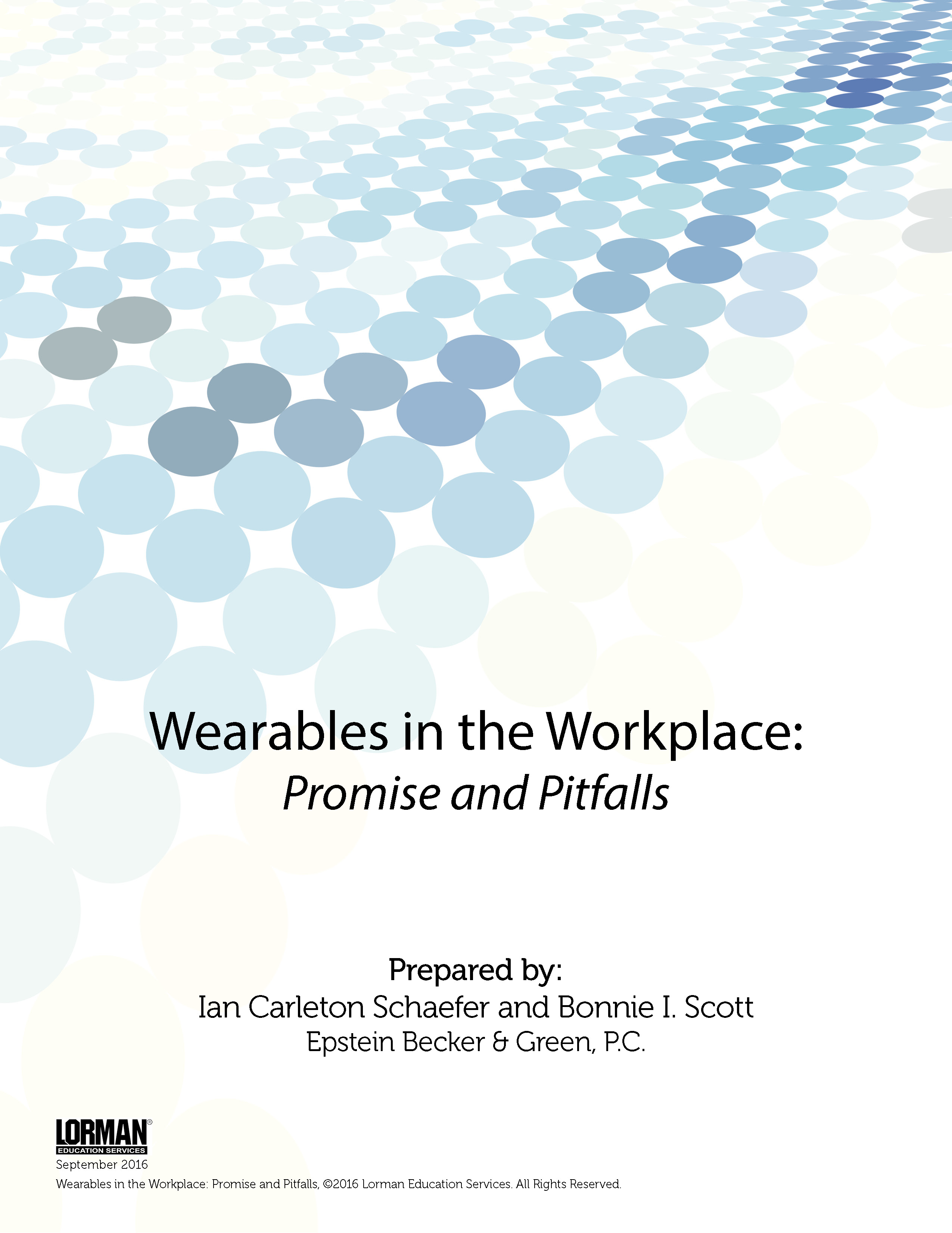Download this white paper to continue reading …
Ian Carleton Schaefer is a member of the Firm in the Employment, Labor & Workforce Management practice, in the New York office of Epstein Becker Green and a member of the firm’s National Labor and Employment Steering Committee. In addition, he co-leads the Technology, Media, and Telecommunications (TMT) service team and is co-editor of the Technology Employment Law blog.
Bonnie I. Scott is an associate of the Firm in the Health Care and Life Sciences practice, in the Washington, DC, office of Epstein Becker & Green, P.C. In 2016, Ms. Scott served as a contributing author of Epstein Becker Green's 50-State Survey of Telemental/Telebehavioral Health, detailing the rapid growth of telemental health - mental health care delivered via interactive audio or video, computer programs, or mobile applications - and the increasingly complex legal issues associated with this trend. She is also a contributor to the Health Law Advisor Blog.
Agenda
Faculty
Ian Carleton Schaefer
Epstein Becker & Green, P.C.
Ian Carleton Schaefer is a member of the Firm in the Employment, Labor & Workforce Management practice, in the New York office of Epstein Becker Green and a member of the firm’s National Labor and Employment Steering Committee. In addition, he co-leads the Technology, Media, and Telecommunications (TMT) service team and is co-editor of the Technology Employment Law blog.
All of your training, right here at Lorman.
Pay once and get a full year of unlimited training in any format, any time!
- Live Webinars
- OnDemand Webinars
- MP3 Downloads
- Course Manuals
- Audio Recordings*
- Executive Reports
- White Papers and Articles
- Sponsored Live Webinars
Additional benefits include:
- State Specific Credit Tracker
- Members Only Newsletter
- All-Access Pass Course Concierge
* For audio recordings you only pay shipping
Questions? Call 877-296-2169 to speak with a real person.
Thank You!
Download White PaperMore Program Information

Access to all training products $699/year
Unlimited Lorman Training
With the All-Access Pass there is no guessing what you will need for your yearly training budget. $699 will cover all of your training needs for an entire year!
Easy Registrations
Once you purchase your All-Access Pass you will never be any further than one-click away from attending any Lorman training course.
Invest in Yourself
You haven't gotten to where you are professionally by luck alone; it's taken a lot of hard work and training. Invest in yourself with the All-Access Pass.